I left the US as a tourist for the first time about a year ago. Before that, all of my international travel was limited to Bosnia and Croatia, where all of my extended family lives. I always saw those yearly months-long trips to the Balkans as vacations, but I never felt like a tourist there. My parents still had their old apartment in Bosnia with some of my childhood things, my extended family was around all the time, my parents ran errands and dealt with family drama that most people go on vacation to escape.
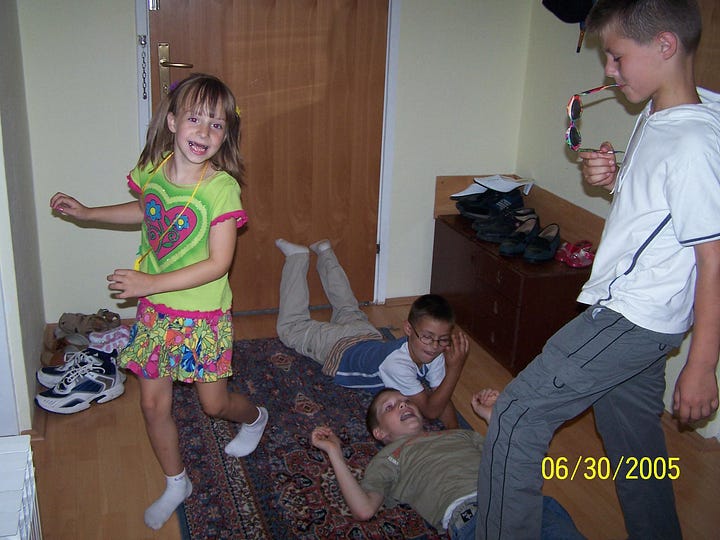
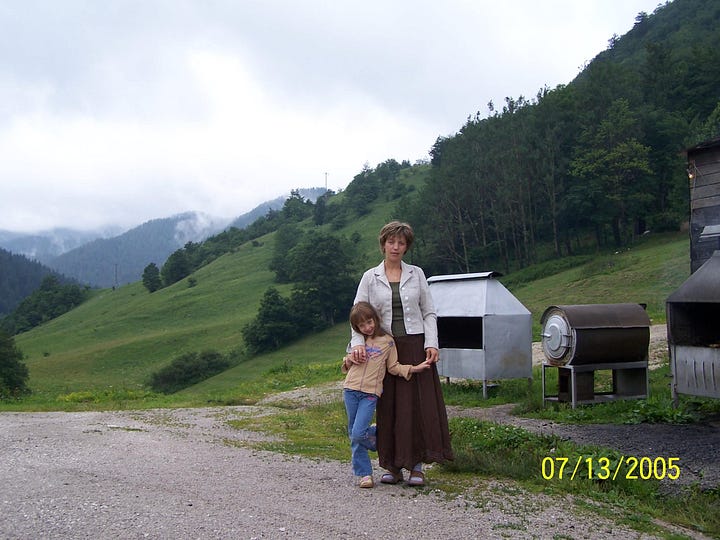


I obviously knew that most people didn’t experience a six hour time difference every time they saw their extended family, but I didn’t realize until recently that most people’s international vacations were to places where they didn’t know anyone and maybe didn’t even speak the language.
In the past year, I’ve been (what I would consider) a tourist in a few different places outside of the US, and I’m asking now myself, what does it actually mean to be a tourist? When do we cross the “tourist boundary” from our own perspective and from others’, and what are our responsibilities?
My first true international tourist vacation was to Croatia last summer. Yes, I went to Croatia to visit my aunt on those family trips growing up, but this time, my boyfriend and I had planned a two week trip to major tourist destinations. In Split, we went on a half-day boat tour with a small group of 10ish people. I kept my Croatian speaking ability on the dl so I could see if the two guys in charge were spilling any juicy gossip about us — no such luck. They were both really nice to everyone, but when I finally revealed myself as a spy by saying something to them in Croatian, they lit up.
This was a recurring theme everywhere we went in Croatia. People would see me, see how I dressed, and assume I was fully American. They’d speak English to me, I’d respond in Croatian, and they’d be surprised. At one really popular pizza restaurant in Hvar, the waiter even gave us a “local discount” of 10% because I spoke Croatian. The more I’ve thought about it, though, the weirder it’s felt to me. Why give a local discount to someone just because they’re fluent in the language?1
The weirdest part is that there’s a difference in how real Croatians pronounce things. My “Croatian” is actually Bosnian2 — I don’t have the same accent that my Croatian family has. I have the accent that my Bosnian family has. This is pretty obvious to all Croatians as soon as I open my mouth, and I bet the local discount guy knew it, too. So was the local discount just a nod to our shared language?
In February 2024, I went to Guadalajara, Mexico for a few days with my boyfriend, his brother, and some of his childhood friends. The four of them had all been in a Spanish immersion school growing up, so they’re all pretty advanced Spanish speakers. As for me, I would say I’ve acquired an intermediate-level of Spanish ability after many years of public school Spanish class.
It was the first first time I’d been to a country where I don’t comfortably speak the language, and my Spanish has gotten really rusty since high school. I was nervous. Every time I had to order at a restaurant, I froze. Every time someone asked me a follow-up question in Spanish, I was caught off guard. I used my advanced-spanish friends as a crutch. I felt incapable, and it made me feel too embarrassed to try saying things in Spanish — even just ordering a coffee — for myself.
Fast-forward a few months, and I’m in Peru, no advanced-spanish speakers this time. I was horrifically nervous going into the trip after Guadalajara. I realized that if I stuck out as a tourist in Croatia, I’m definitely going to stick out in Peru — being both white and a head taller than almost everyone. So I made the choice to stop caring. I’d order things, sometimes stumble over my words and sound silly. But throughout my three weeks in Peru, it felt really good to be able to connect with people and learn about their culture with the language that people grew up speaking.
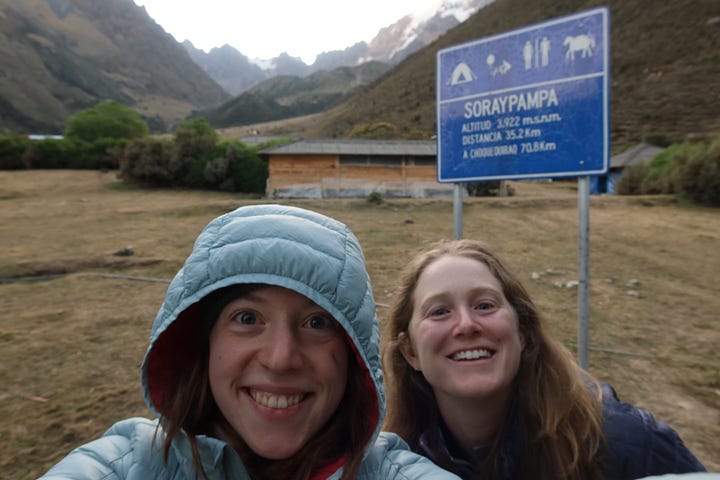

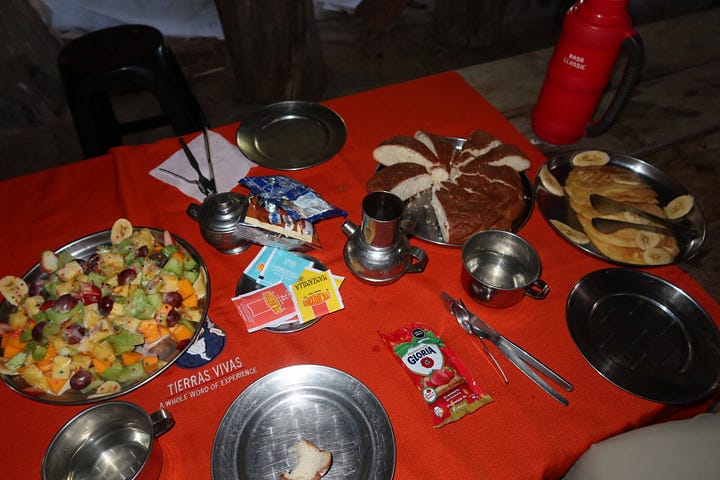
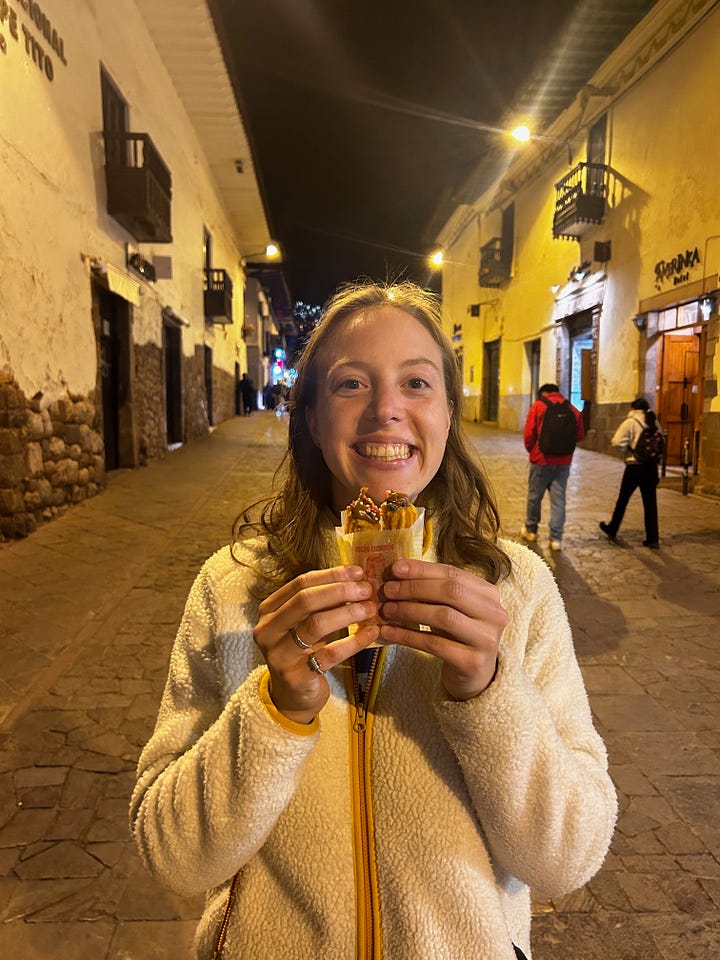
A couple weeks after I got home from Peru, I left for back-to-back conferences in Venice and Ottawa. I don’t speak a lick of Italian. Going into the country, I didn’t even know how to say “hello” or “yes.” After a couple days, I learned the basics like “buongiorno” and “grazie mille” and “ciao” (maybe that one’s obvious, but my neurons weren’t firing I guess). It felt pretty weird to me, apologetically saying “english please” to everyone and stupidly greeting them with “hello.”3
It felt even more wrong when I learned that, Venice, an island of only about 55,000 year-round inhabitants, has over 120,000 tourists per day in the summer. I found myself getting frustrated with the huge crowds of tourists on main streets, even though I was also a tourist! Overtourism in Venice is a whole other problem, but it made me think that the locals would probably appreciate people who learned even a few words of Italian — being able to greet them and ask if they can speak English (in Italian) at a minimum. So I did, but only within my last couple days there.
I came into Ottawa, a city that takes it’s French-Canadian bilingualism very seriously, ready to go. I didn’t care if the little French I know sounded silly. I even had a few word conversation at breakfast one morning that went like this:
Man: “Bonjour! Ca va?”
Me: “Bien, et toi?”4
Man: “Tre bien!”
Me: “Bonne journee!”
I left giggling to myself, happy with the progress in not caring I’d made in the past few months. It’s honestly liberating to know I don’t need to take the language stuff too seriously, to feel embarrassed about it or shy — all I need to do is make an effort.
Part of being a tourist is getting out of your comfort zone. I was very much in my comfort zone in Croatia last year. It was easy to get around, I didn’t feel shy or anxious about asking for help — if anything, I felt proud. Proud that they’d assume I was “just another tourist” in one of the touristy cities and that I could whip out my fluent Croatian to prove them wrong. But it’s okay — it’s good, even — to be uncomfortable.
For the record, I’m totally on board with giving locals discounts — most of them can’t compete with the money that tourists have to spend. My family in Croatia rarely eats out in the summers because the prices get increased so much to maximize tourist revenue!
Bosnian and Croatian (and also Serbian and Montenegrin) are all mutually intelligible. They’re the same language that was called Serbo-Croatian in former Yugoslavia, but now have different names for political reasons.
No shade to other people who do this/have done this — it’s just my personal opinion and felt silly to me!
I’ve since been told that I should use the formal when talking to strangers. oops.






Hi! 🤗 Don't know if you might be interested but I love to write about fashion, travel and our relationship with clothes. My writing has not commercial purposes, in fact I focus on sustainability. I talk about anything related primarily to vintage and pre loved fashion 🎀 but also slow living and slow traveling 🌱 I like to explore the impact textile industry and consumistic culture have on the environment and also what people can do to shift the tendency.
• • •
https://from2tothrift.substack.com/